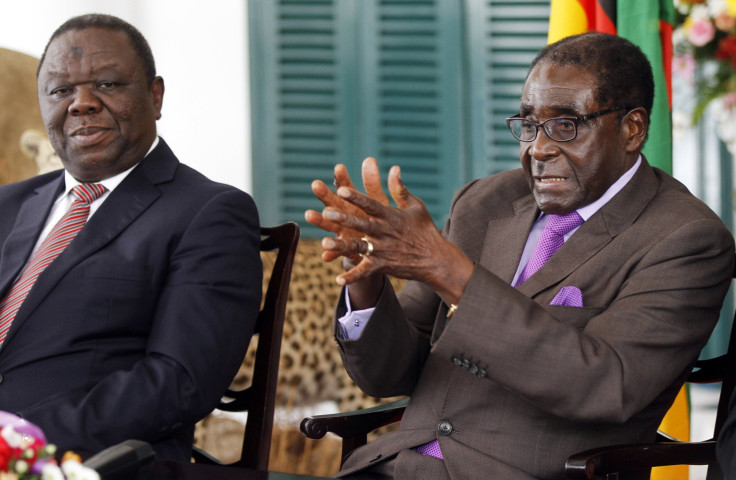Robert Mugabe Retains Post As Zimbabwe’s President, With 61 Percent Of Vote

Zimbabwe’s President Robert Mugabe won the country’s presidential election this week, with the nation’s chief electoral body reporting Saturday that he handily beat challenger Morgan Tsvangirai at the polls Wednesday, 61 percent to 33 percent, according to the Associated Press. Tsvangirai, Zimbabwe’s prime minister since 2009, dismissed the election result as fraudulent and urged his Movement for Democratic Change party to peacefully respond to alleged massive vote-rigging by Mugabe’s Zanu-PF party, AP reported.
“People of Zimbabwe must be given another chance to participate in a free, fair and credible election. They have been shortchanged by a predetermined election,” AP quoted Tsvangirai as saying. He claimed his party has in its possession evidence of alleged massive vote-rigging by Mugabe’s party and that it would challenge the election result in court.
However, Tsvangirai indicated the legal challenge is just one of the strategies being contemplated. “The courts are only one option we will be pursuing,” he wrote on his official Facebook page Saturday, when he argued the courts had been compromised by fresh appointments made days before the election. “The courts will not be the only arena of resistance.”
Tsvangirai also contended his party would not “participate in any government institutions” in protest, but AP noted he did not say it would boycott the Harare Parliament, where it suffered in parliamentary elections Wednesday.
According to the Zimbabwe Electoral Commission, Mugabe’s Zanu-PF party won 158 seats and Tsvangirai’s Movement for Democratic Change party won 49 seats in the 270-seat National Assembly, BBC News reported. One member of the nine-member electoral commission, Mkhululi Nyathi, has resigned since the voting Wednesday, citing doubts about the integrity of the results, Reuters said.
© Copyright IBTimes 2024. All rights reserved.












